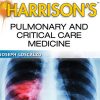Predictors, Prevalence, and Outcomes of Early Crystalloid Responsiveness Among Initially Hypotensive Patients With Sepsis and Septic Shock
ncbi.nlm.nih.govTwo in three hypotensive sepsis patients were responsive to initial fluid resuscitation. Heart failure, hypothermia, immunocompromise, hyperlactemia, and coagulopathy were associated with the refractory phenotype. Fluid resuscitation initiated after the initial 2 hours more strongly predicted refractoriness than any patient factor tested. Sex, age, heart failure, renal failure, immunocompromise, source of infection, initial lactate, coagulopathy, temperature, altered mentation, altered gas exchange, and acute kidney injury were used to generate a risk score. The primary outcome was sustained normotension after fluid challenge without vasopressor titration.

















